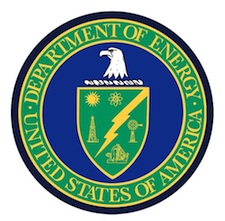The U.S. Department of Energy announced this week that it’s creating a new Office of Cybersecurity, Energy Security, and Emergency Response (CESER).
The new office will be led by an assistant secretary who will report to the undersecretary of energy. The role of the assistant secretary will be to focus on energy infrastructure security and support the DoE’s expanded national security responsibilities.
The CESER office will help the DoE efficiently coordinate preparedness and response to both manmade and natural threats.
“DOE plays a vital role in protecting our nation’s energy infrastructure from cyber threats, physical attack and natural disaster, and as Secretary, I have no higher priority,” said U.S. Secretary of Energy Rick Perry. “This new office best positions the Department to address the emerging threats of tomorrow while protecting the reliable flow of energy to Americans today.”
U.S. President Donald Trump has proposed a budget of $30.6 billion for the DoE, including $96 million allocated for bolstering the department’s cybersecurity and energy security efforts. Overall, the current administration wants to invest $80 billion in IT and cybersecurity, which represents a 5.2 percent increase compared to the previous fiscal year.
Energy facilities in the United States and the Energy Department itself have often been targeted by malicious hackers in the past years.
In response to the increasing threat, the DoE announced a few months ago its intention to invest more than $20 million in cybersecurity, including tools and technologies for enhancing cybersecurity, communication systems for resilient grid architectures, energy delivery systems that can adapt to survive a cyber incident, partnerships for vulnerability mitigation, and identifying energy delivery systems that are inadvertently accessible from the Web.
Related: Did Major Cyberattacks of 2017 Impact Security Budgets?
Related: World Economic Forum Announces Global Centre for Cybersecurity
Related: Energy Regulator Acts to Improve Power Grid Security
http://feedproxy.google.com/~r/Securityweek/~3/8kTKv9N8i5Y/us-energy-department-announces-office-cyber-energy-security



